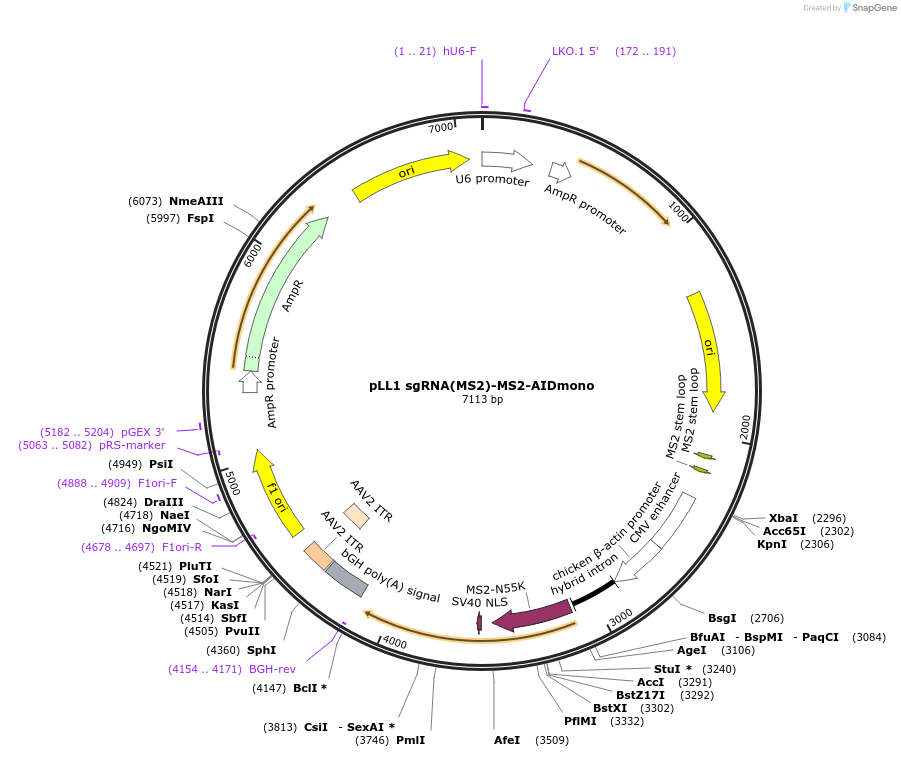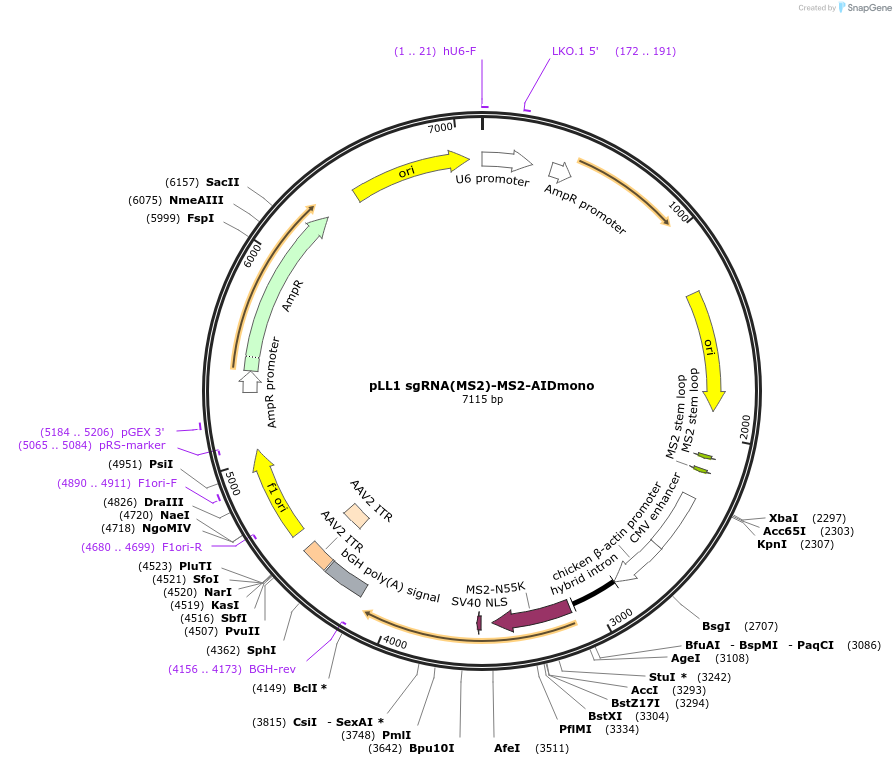pLL1 sgRNA(MS2)-MS2-AIDmono
(Plasmid
#112127)
-
Purposeempty sgRNA cloning vector with MS2-AIDmono
-
Depositing Lab
-
Sequence Information
Ordering
| Item | Catalog # | Description | Quantity | Price (USD) | |
|---|---|---|---|---|---|
| Plasmid | 112127 | Standard format: Plasmid sent in bacteria as agar stab | 1 | $89 | |
Backbone
-
Vector backbonepX330
-
Backbone manufacturerZhang lab (Addgene plasmid #42230)
- Backbone size w/o insert (bp) 7115
-
Vector typeMammalian Expression, CRISPR
Growth in Bacteria
-
Bacterial Resistance(s)Ampicillin, 100 μg/mL
-
Growth Temperature37°C
-
Growth Strain(s)DH5alpha
-
Copy numberHigh Copy
Gene/Insert
-
Gene/Insert nameAID mono mutant
-
SpeciesH. sapiens (human)
-
Insert Size (bp)531
-
MutationN- mutated and C- terminal truncated, H130A/R131E/L181Q mutant in human AID
-
Entrez GeneAICDA (a.k.a. AID, ARP2, CDA2, HEL-S-284, HIGM2)
- Promoter hU6,CBh
Cloning Information
- Cloning method Gibson Cloning
- 5′ sequencing primer CATCGCCGCTAACTCAGGTAT
- 3′ sequencing primer GGGAGGGGCAAACAACAGAT
- (Common Sequencing Primers)
Resource Information
-
Supplemental Documents
Terms and Licenses
-
Academic/Nonprofit Terms
-
Industry Terms
- Not Available to Industry
Trademarks:
- Zeocin® is an InvivoGen trademark.
Depositor Comments
Additional reference: https://www.ncbi.nlm.nih.gov/pubmed/?term=28757211
These plasmids were created by your colleagues. Please acknowledge the Principal Investigator, cite the article in which the plasmids were described, and include Addgene in the Materials and Methods of your future publications.
-
For your Materials & Methods section:
pLL1 sgRNA(MS2)-MS2-AIDmono was a gift from Fei-Long Meng (Addgene plasmid # 112127 ; http://n2t.net/addgene:112127 ; RRID:Addgene_112127) -
For your References section:
Intrinsic Nucleotide Preference of Diversifying Base Editors Guides Antibody Ex Vivo Affinity Maturation. Liu LD, Huang M, Dai P, Liu T, Fan S, Cheng X, Zhao Y, Yeap LS, Meng FL. Cell Rep. 2018 Oct 23;25(4):884-892.e3. doi: 10.1016/j.celrep.2018.09.090. 10.1016/j.celrep.2018.09.090 PubMed 30355495




